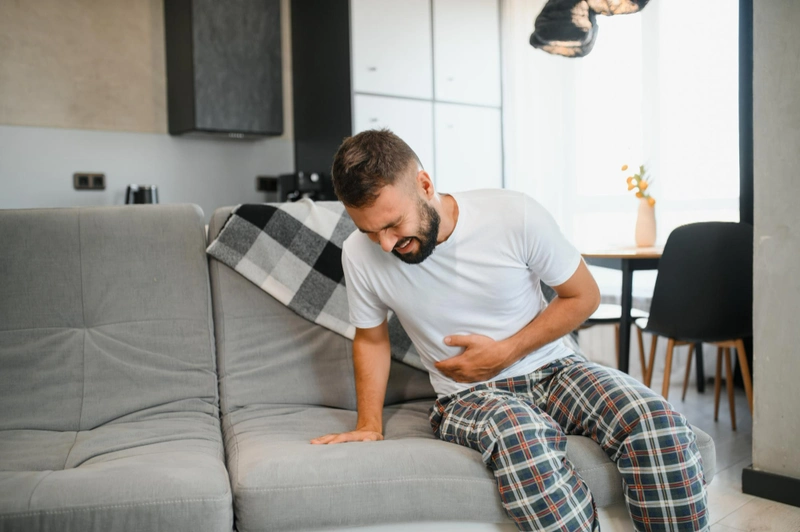- Published on: Mar 03, 2023
- 2 minute read
- By: Secondmedic Expert
How To Consult A Psychiatrist Online ?
Consulting a psychiatrist online can be a convenient and accessible way to receive mental health care. Here are some steps to follow:
- Research online psychiatry services: Look for reputable online psychiatry services that offer virtual appointments. You can use search engines or online directories to find options.
- Choose a psychiatrist: Review the profiles and credentials of the psychiatrists available and choose one that best fits your needs. Consider factors such as their area of specialization, experience, and availability.
- Schedule an appointment: Once you have chosen a psychiatrist, schedule an appointment with them through their online platform or by calling their office. Many online psychiatry services offer flexible scheduling options, including evenings and weekends.
- Set up technology: Make sure you have the necessary technology to participate in the virtual appointment, such as a reliable internet connection, a webcam, and a microphone. Some psychiatrists may use specific telehealth platforms or software, so check in advance what technology is required.
- Prepare for the appointment: Before the appointment, prepare any questions or concerns you want to discuss with the psychiatrist. Also, make sure you are in a quiet and private location where you can talk openly about your mental health.
- Attend the virtual appointment: On the day of the appointment, log in to the virtual platform or software and attend the appointment. The psychiatrist will likely ask questions about your mental health history, current symptoms, and any other relevant information.
- Follow-up: After the appointment, the psychiatrist may provide you with a treatment plan or refer you to other mental health professionals or resources. Follow any recommendations provided, and schedule any follow-up appointments as needed.
- It is important to note that online psychiatry may not be appropriate for everyone, especially in cases where there are concerns about safety or the need for in-person care. It's important to assess whether online psychiatry is the right fit for your mental health needs, and to discuss any concerns with your healthcare provider.
- Check insurance coverage: Before scheduling an appointment, check with your insurance provider to see if online psychiatry services are covered under your plan. Some insurance providers may have restrictions or requirements for virtual care.
- Fill out necessary forms: Many online psychiatry services require you to fill out forms or questionnaires before your appointment. Make sure to complete these forms accurately and thoroughly to provide the psychiatrist with the information they need to make an accurate assessment.
- Be honest and open: Like with in-person appointments, it's important to be honest and open with your psychiatrist during the virtual appointment. Discuss your symptoms and concerns openly and ask any questions you may have. The more honest and open you are, the better the psychiatrist can assess your mental health and develop a treatment plan.
- Take notes: During the appointment, take notes on any recommendations, treatment plans, or referrals provided by the psychiatrist. This will help you remember important information and follow any recommendations provided.
- Follow up with any concerns: If you have any concerns or questions after the appointment, don't hesitate to contact the psychiatrist or their office. Many online psychiatry services offer follow-up support or resources to help you manage your mental health.
- Online psychiatry can be an effective way to receive mental health care, especially in cases where in-person appointments may not be feasible or accessible. By following these tips, you can make the most out of your virtual appointment and receive the care you need to manage your mental health.
- Ensure privacy and security: It's important to ensure that the virtual platform or software used for the appointment is secure and encrypted to protect your privacy. Make sure to log in to the appointment from a private location where you can talk openly and confidentially about your mental health.
- Test your technology in advance: Before the appointment, test your technology to ensure that your internet connection, webcam, and microphone are working properly. This will prevent any technical issues from disrupting the appointment.
- Be patient and flexible: Like with in-person appointments, virtual appointments may sometimes experience technical difficulties or other unexpected issues. It's important to be patient and flexible, and to work with the psychiatrist to find a solution if any issues arise.
- Evaluate your experience: After the appointment, take some time to evaluate your experience and reflect on how you feel. Did you feel comfortable and heard during the appointment? Did you feel that the psychiatrist provided helpful recommendations and support? This feedback can be useful for future appointments and for choosing the right mental health professional.
Remember, virtual appointments with a psychiatrist can be just as effective as in-person appointments for managing mental health. By taking these additional tips into consideration, you can make sure you have a positive and productive experience with your online psychiatrist.
Our Services
Request A Callback
Recent Posts
High Blood Pressure: Everything You Need to Know
Apr 24,2025










